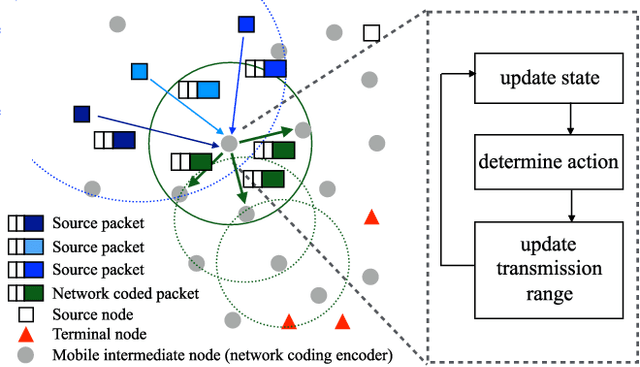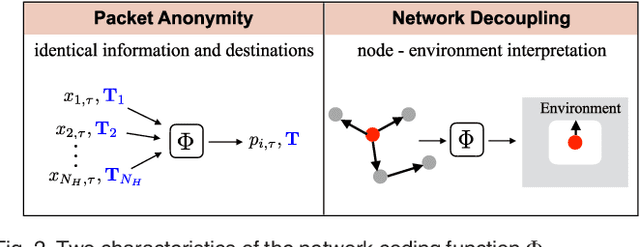Network Coding Based Evolutionary Network Formation for Dynamic Wireless Networks
Paper and Code
Aug 16, 2018



In this paper, we aim to find a robust network formation strategy that can adaptively evolve the network topology against network dynamics in a distributed manner. We consider a network coding deployed wireless ad hoc network where source nodes are connected to terminal nodes with the help of intermediate nodes. We show that mixing operations in network coding can induce packet anonymity that allows the inter-connections in a network to be decoupled. This enables each intermediate node to consider complex network inter-connections as a node-environment interaction such that the Markov decision process (MDP) can be employed at each intermediate node. The optimal policy that can be obtained by solving the MDP provides each node with optimal amount of changes in transmission range given network dynamics (e.g., the number of nodes in the range and channel condition). Hence, the network can be adaptively and optimally evolved by responding to the network dynamics. The proposed strategy is used to maximize long-term utility, which is achieved by considering both current network conditions and future network dynamics. We define the utility of an action to include network throughput gain and the cost of transmission power. We show that the resulting network of the proposed strategy eventually converges to stationary networks, which maintain the states of the nodes. Moreover, we propose to determine initial transmission ranges and initial network topology that can expedite the convergence of the proposed algorithm. Our simulation results confirm that the proposed strategy builds a network which adaptively changes its topology in the presence of network dynamics. Moreover, the proposed strategy outperforms existing strategies in terms of system goodput and successful connectivity ratio.
 Add to Chrome
Add to Chrome Add to Firefox
Add to Firefox Add to Edge
Add to Edge